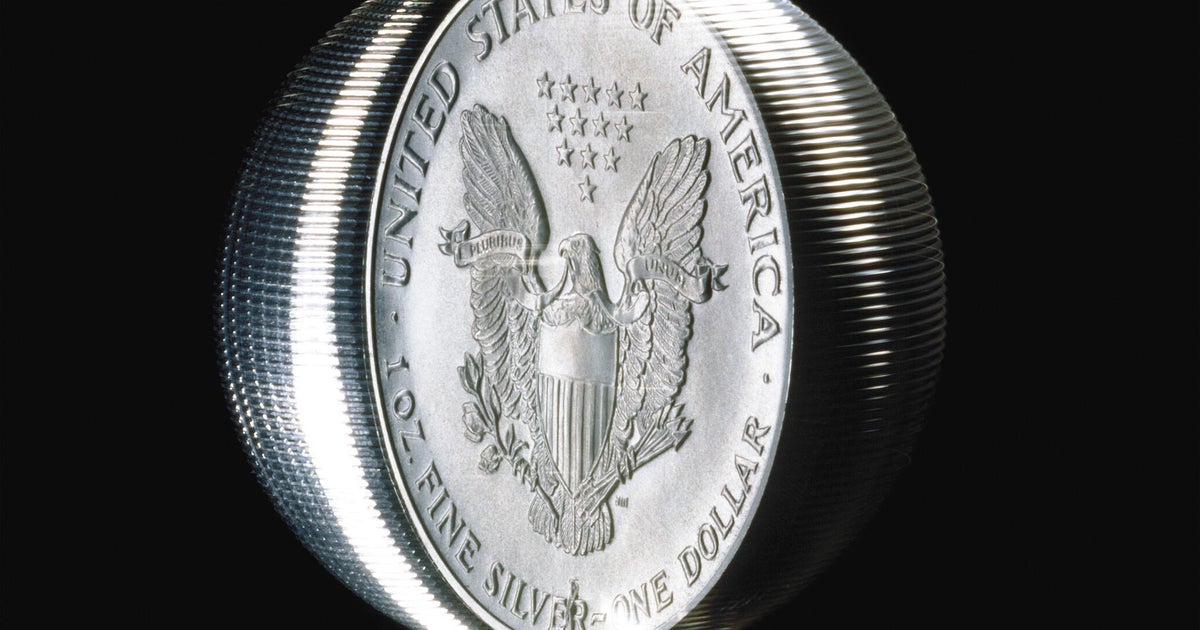Frontline workers are getting raises, but inflation is whittling the gains to "pennies"
The U.S. labor shortage during the pandemic has helped boost wages for frontline employees like grocery clerks and retail workers at their fastest pace in years. Many restaurant workers have seen their wages jump 12% over the last year, a pay raise of more than $2 an hour.
Because of rising prices, however, those seemingly robust wage gains amount to an increase of only "pennies" per hour once inflation is included, according to a new analysis from the Brookings Institution. The study examined wages at 13 of the biggest and most profitable retail, grocery and fast-food companies in America — companies such as Amazon.com, which recently boosted wages to attract new hires. Together, these businesses employ 5 million workers.
"We're seeing headlines that, yes, wages did go up, but when you take into effect inflation, it's not up very much at all," said Molly Kinder, a co-author of the study and a fellow at Brookings Metro. And workers in these industries "started at such a low level that, even though it's still an almost 10% increase, it's still a very low wage."
For instance, Kroger in October lifted its average hourly wage to $16.25, a boost of $1.25 from its prior average rate. But a Kroger grocery worker these days would have to earn $16.08 an hour to have the same purchasing power as someone earning $15 an hour before the pandemic, Brookings found.
After inflation, the real pay increase for Kroger workers is 17 cents an hour — $25 a month — the study concluded. Only one of the 13 companies, Amazon, paid an average wage that now meets the standard of a living wage, according to the centrist think tank.
Kroger took issue with the findings, saying that its average wage by year-end will top $21 an hour when factoring in the sweetened benefits the company now offers.
"Brookings failed to note Kroger's additional investment in our associates by expanding our industry-leading benefits, including continuing education and tuition reimbursement, training and development, health and wellness, and retirement benefits," the company said in a statement to CBS MoneyWatch.
Those benefits will offer a lasting leg up to Kroger workers, while inflation will eventually moderate, the company added.
White-collar workers, whose pay raises have been more muted this year, are also feeing the sting of inflation. But frontline workers generally feel the impact of rising prices more because many do not earn a living wage or otherwise live close to the edge.
Wage erosion
It's difficult for most workers to avoid the pain of higher prices given that inflation is hitting a wide range of goods, from gasoline to food at the grocery store. That is souring Americans' view of the economy, with two-thirds describing the economy bad — the worst numbers since the depths of the pandemic in the summer of 2020, a recent CBS News poll found.
Across the board, workers are experiencing an erosion in "real" wages, or pay after inflation is factored in. Employees saw their real average hourly earnings slump by almost 2% in November compared with a year earlier, the Labor Department said on Friday.
Many of the hardest-hit are people who work in professional and business services — white collar jobs such as accountants and architects — who saw their wages rise 5.7% in November, compared with a year earlier. But inflation outpaced that, with a 6.8% increase during that same time.
Businesses are boosting wages to attract new hires amid a labor shortage, with about 2.5 million fewer people in the workforce than prior to the pandemic. Workers are resigning to start their own businesses, to cope with family-care demands or retiring as part of the aging of the baby boomer generation.
The "Great Resignation" is putting pressure on businesses to step up with wage hikes and enhanced benefits. But that often isn't enough to offset inflation, especially for low-paid workers who were struggling prior to the pandemic, the analysis found.
Low-wage workers are also experiencing higher levels of stress, Brookings' Kinder said. For one, the ongoing pandemic continues to pose health risks for them and their families, while the businesses where they work are often short-staffed, putting more demands on them. At the same time, employers are experiencing strong revenue and profit gains during the pandemic — and workers may not feel like they are benefiting.
"Most of them saw big increases in profit, big increases in revenue," Kinder said. "And workers feel this big disconnect," leading to developments such as Starbucks' employees unionizing and John Deere workers going on strike.
Kinder added, "Millions of frontline hourly workers are doing better but they aren't doing well. And despite some of the headlines on wage gains, I don't think the pandemic economy is working for most hourly workers."



